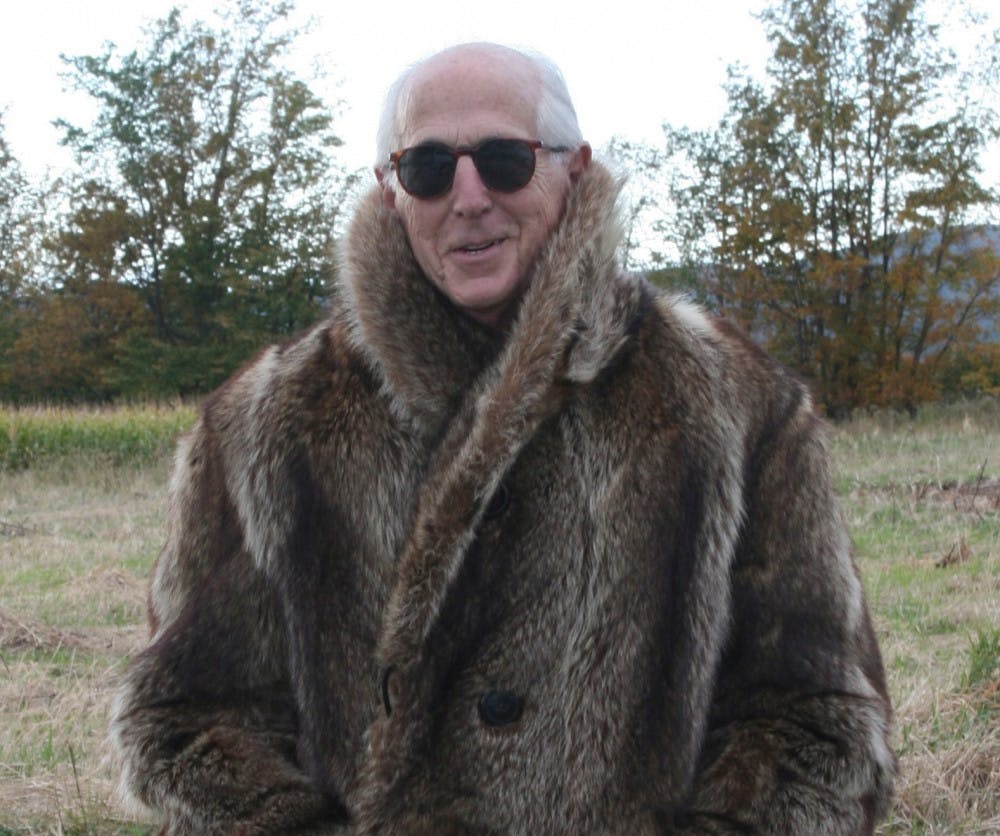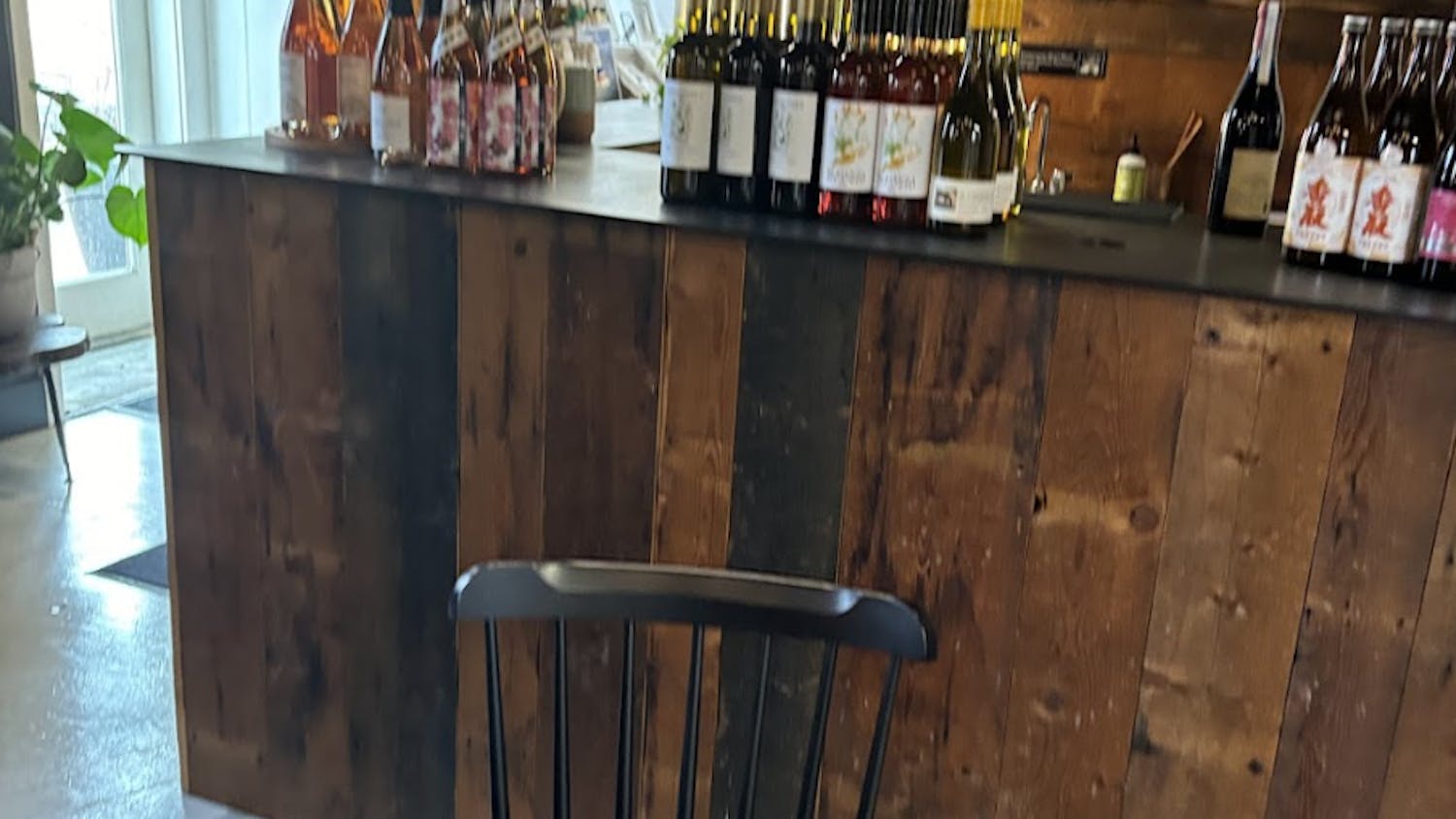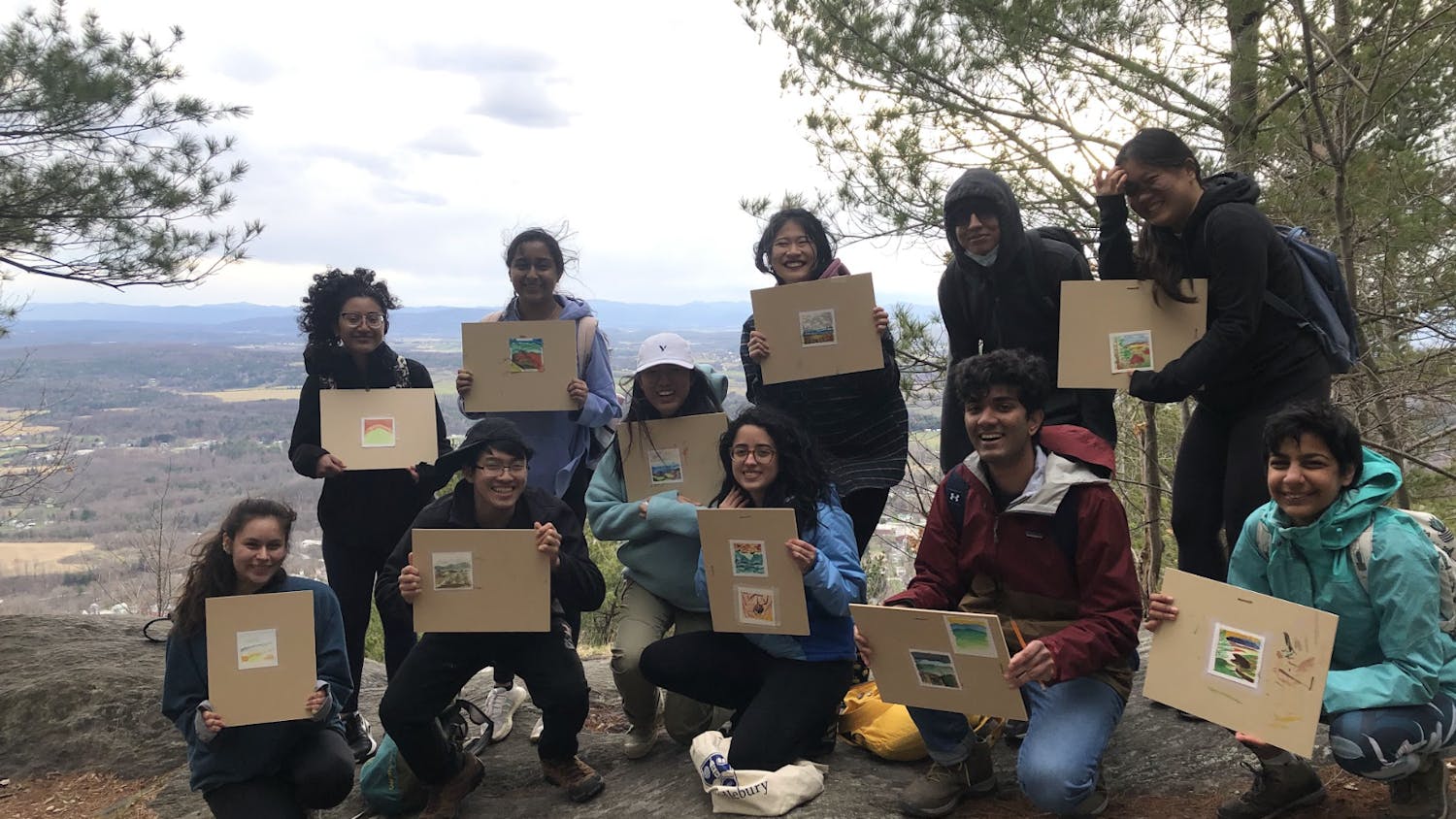William F. Brooks, Jr., the Executive Director of the Henry Sheldon Museum, radiates passion for his work. Since he was appointed in 2012, Brooks has worked extensively to foster a cohesive relationship between the town and the museum.
Recognized as the oldest community-based museum in the country, the Henry Sheldon Museum proudly situates itself between the present and the past. The museum is housed in the Judd-Harris house, a historic residence built in 1829. The museum holds the Stewart-Swift research center, a premier archival collection of over 100,000 works from Addison County and broader Vermont; it also houses the Walter Cerf Gallery, a space for hosting frequent exhibits and onsite and outreach education programs.
Brooks’ path to his position as executive director was anything but conventional. For the first part of his professional career, Brooks was a banker in Washington D.C. and the eastern shore of Maryland. Throughout his banking career, Brooks watched as the bank grew from one office in the state of Maryland to 34 offices spreading from Delaware, Pennsylvania, Washington D.C., and Virginia.
However, after 25 years in this line of work, Brooks decided to make a change. He discussed what sparked his initial interest to change career paths. “I started collecting shore birds and duck decoys on the eastern shore of Maryland,” Brooks explained, “and then my interest sort of grew from there.”
Brooks admitted that his decision to end his banking career was a progressive one. Brooks said, “it was a gradual realization, no specific date or revelation prompted my decision, but a combination of passion for the arts, financial stability, and family events.”
Despite his overall conviction to make the career change, Mr. Brooks did admit that leaving the banking world did not come without drawbacks. “The most difficult part was leaving friends, co-workrers and a community where I had resided for 25 years.”
When asked about what advice he could offer others who are interested in making a career change, Mr. Brooks answered, “if you feel passionate about a new calling, go for it! I was 50 years old when I made the transition, which was made easier because I had enjoyed success as a banker and was financially secure.”
“Related to the transition,” Mr. Brooks continued, “were the recent deaths of my parents which seemed to have freed my siblings and me to seek new careers.”
Deciding to follow his passion, Brooks earned a master’s degree in American Folk Art Studies from New York University, a program co-sponsored by the Museum of American Folk Art. Brooks wrote two major research papers on Italian-American sculptors during his time as a graduate student and even travelled to meet the families of the artists he had studied.
“It was exciting to go back to the roots of the artists, meet the members of their family and receive such great hospitality,” Brooks said.
“It was incredible,” Brooks continued, “because I was not only able to appreciate the carvings of the artist, but also where they came from.” From that moment on, Brooks was hooked.
He lights up when talking about folk art and outsider art, a style of art that is made by self-taught artists who have a passion for creating art. When separating art from common objects, he explained, “the aesthetics comes into play. Is it beautiful? Does it measure up to some standard of craftsmanship?”
Although Brooks was overcome with optimism, he acknowledged that launching his career in folk art was not easy.
“I was 50 years old and I found out that there weren’t too many jobs for someone who had no experience, but had a masters in folk art studies,” Brooks said.
Despite an initial lack of experience, Brooks was able to enter the field and work his way up. From 1997 to 2002, Brooks served as the Executive Director of Frog Hollow, the Vermont State Craft Centers, overseeing craft galleries and education centers located in Manchester, Burlington, and Middlebury. From there, Brooks became the Development Director of the Calvin Coolidge Memorial Foundation of Plymouth Notch.
Brooks described his return to Middlebury for his appointment as Executive Director as “a second homecoming.” His maternal grandparents, Dr. and Mrs. Jacob Johnson Ross, both graduated from the University of Vermont and later settled in Middlebury where his mother was born. Dr. Ross opened up a medical practice in town, and Mrs. Ross taught math at Middlebury Union High School. Brooks also spent his summers on Lake Champlain.
His family owned the Kitchel House, which became the College’s first women’s dormitory, and now serves as the home of College Communications. Brooks disclosed that within the archives of the museum, there are letters from his grandfather to his grandmother when his grandfather served as a flight surgeon in World War I.
Brooks recognized that with his change of career, his relationship to money has been altered, in that he transitioned from managing money in the banking world, to raising money in the non-profit world.
“The difference between running a bank and running a non-profit,” Brooks said, “is that even though they are both people driven, when you’re working for a non-profit it is much more collaborative, whereas if you’re an executive at a bank you can make decisions much more quickly and not necessarily worry about the collaborative aspect.”
“The hardest part of a non-profit,” Mr. Brooks continued, “is to have events, whether it is a raffle, or special projects, that are income producing. Supposedly there are more non-profits per capita in Vermont than in any other state, but this community is very philanthropic and we are blessed because Middlebury alumni are very generous.”
“I learned what a wonderful staff there is here, which is very small and dedicated, and what a wonderful community we live in. I love being involved with the exhibits, and having researchers come here and find items in our archives that help them with their work,” commented Brooks on his experience so far as Executive Director.
In addition, Brooks acknowledged the pivotal role the Henry Sheldon Museum plays in connecting various members of the community. As a historical society, members of the local community and College faculty take advantage of the archives for both genealogical and academic research. As an educational center, the museum offers internships for students at the College, and outreach programs for children in the community.
Due to his multi-faceted interactions with the community, Brooks is in a unique position to comment on the way the College has interacted with the town.
“I’ve always admired the College, especially Ron Liebowitz, and his predecessor John McCardell because to me they have a great partnership and they think about the town. I mean they pay taxes even though they don’t have to, they’ve contributed to the town hall theater when that was built, they’ve contributed with the new town hall, and this decision to move it, which was quite controversial,” Brooks said.
“I’m always very impressed,” Brooks continued, “and grateful that the College is here. There has been some criticism on areas that I’m not that familiar with, but my overall impression is that this place wouldn’t be what it is without the College. It’s wonderful from our point of view to have students here working, to have faculty and faculty spouses on our Board of Trustees, and to have them as members. To me it’s a great partnership, and I’m so glad they are here.”
As well as his role as Executive Director of the Henry Sheldon Museum, Brooks is active in other aspects of the community. He previously served as President of the Addison County Economic Development Corporation, was a board member of GRACE [Grass Roots and Community Effort], and was a member of the Vermont Human Resources Board. He currently serves on the Board of the Middlebury College Museum of Art.
Given his background in the town’s economic development, Mr. Brooks expressed his concerns for the future ethos of small businesses in Middlebury. “Hopefully downtown will maintain itself with sole ownerships, and unique character. We just have to keep locals shopping here,instead of going elsewhere,” Brooks said.
For now, Brooks remains fully invested in his work. Sitting peacefully in the Judd-Harris house, Brooks admitted, “This winter has gotten me down a little. But on a beautiful day like today, the sun is shining.”




